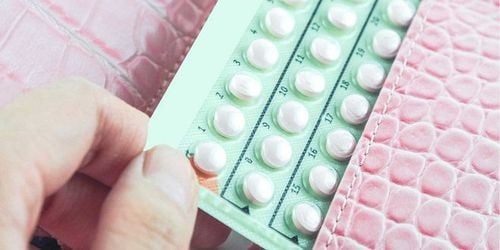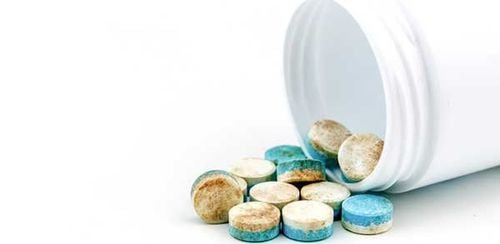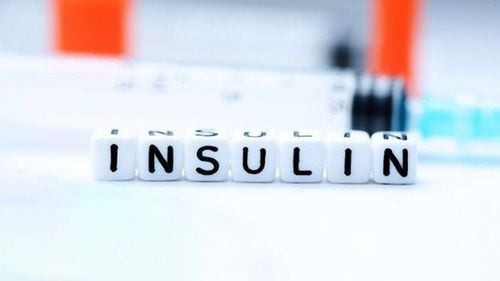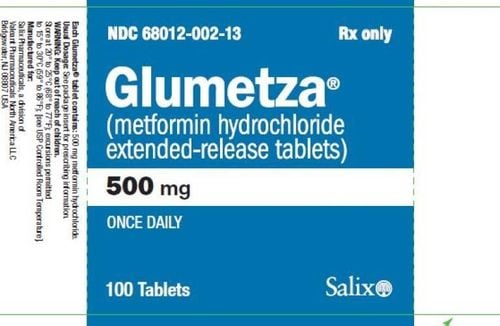This is an automatically translated article.
Hypoglycemia is a condition that occurs when blood sugar levels are below the normal range. It usually occurs in people being treated for diabetes, but can also occur in people due to starvation or other medical conditions. Depending on the degree of hypoglycemia, the symptoms of hypoglycemia can vary from mild to severe.
1. What causes hypoglycemia? Blood sugar needs to be maintained at a certain threshold in order for the cells in the body to be able to use the sugar effectively. When the blood glucose level is below 3.9 mmol/l, it is called hypoglycemia.
Common causes of hypoglycemia include:
Hypoglycemia is common in patients with diabetes who are being treated with insulin or drugs that stimulate insulin production such as sulfonylureas drugs (diamicron, amaryl, .. .). When the amount of insulin hormone in the blood increases, it lowers blood sugar. This is the main cause of symptoms of hypoglycemia in adults. Excessive physical activity: Excessive exercise, especially for those who are not used to high-intensity exercise, can cause the body to lower blood sugar by increasing its use to create energy for exercise. Eating meals too far or skipping meals: After eating sugar is absorbed into the blood partly used for energy, the rest is stored as glycogen in the liver. When away from a meal, the body will mobilize glycogen sources to ensure that sugar is always at the allowable threshold. However, if you eat too far or skip meals, your body cannot supply the necessary amount of sugar and the amount of glycogen is not enough to raise blood sugar levels, which will cause you to have low blood sugar. This can be the cause of symptoms of low blood sugar in women, because they often fast to lose weight. Diseases of the liver and kidneys cause the body to reduce its ability to store sugar and the body is prone to hypoglycemia after eating. Excessive alcohol consumption: Drinking a lot without food can prevent the liver from releasing glucose stored as glycogen into the bloodstream, causing low blood sugar.
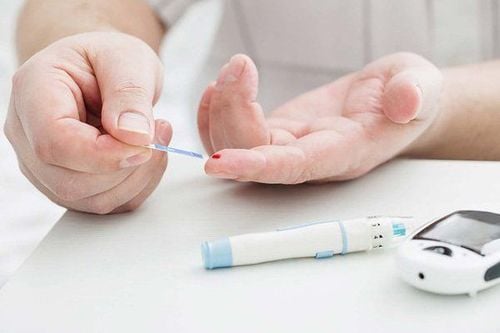
Tùy theo mức hạ đường huyết mà các triệu chứng tụt đường huyết có thể khác nhau từ nhẹ tới nặng
Hypoglycemia can be caused by a number of other less common causes including:
Medication: Often accidentally taking the wrong diabetes medication is a possible cause of low blood sugar. Other drugs can also cause hypoglycemia, which is more common in children or in people with kidney failure, such as quinine, which is used to treat malaria. Tumor: A rare tumor of the pancreas (insulinoma) can cause your body to produce too much insulin, leading to low blood sugar. Other tumors can also lead to overproduction of substances with insulin-like properties. Endocrine factors: A disorder of the adrenal and pituitary glands can lead to a deficiency of the hormones whose primary function is to regulate glucose production. Children can also develop low blood sugar if they have too little growth hormone. Malnutrition: People who are not provided with adequate nutrition can also cause hypoglycemia. Infection: When the body has an infection, it takes more energy to protect the body from the effects of microorganisms. Not only that, when infected with bacteria, patients also tend to have anorexia, which also contributes to an increased risk of hypoglycemia.
2. Symptoms of hypoglycemia Symptoms of hypoglycemia may include:
With mild cases: The patient feels hungry, nauseous, anxious, restless, sweaty, shaking hands legs, palpitations, tachycardia, nausea, vomiting, paresthesias in the extremities and around the lips, headache, double vision. In addition, the patient also has symptoms of neuropsychiatric disorders such as excitement, joy, slurred speech or sometimes sadness, abnormal behavior... Severe cases: The patient may appear transient The above symptoms then appear as severe as convulsions, hallucinations, jaw stiffness, focal paralysis, transient loss of consciousness or coma. If there is a blood glucose meter, the blood glucose level is < 70mg/dl (3.9 mmol/l). Clinical symptoms improved after adequate glucose supplementation. Patients may have a history of hypoglycemia, are being treated for diabetes...
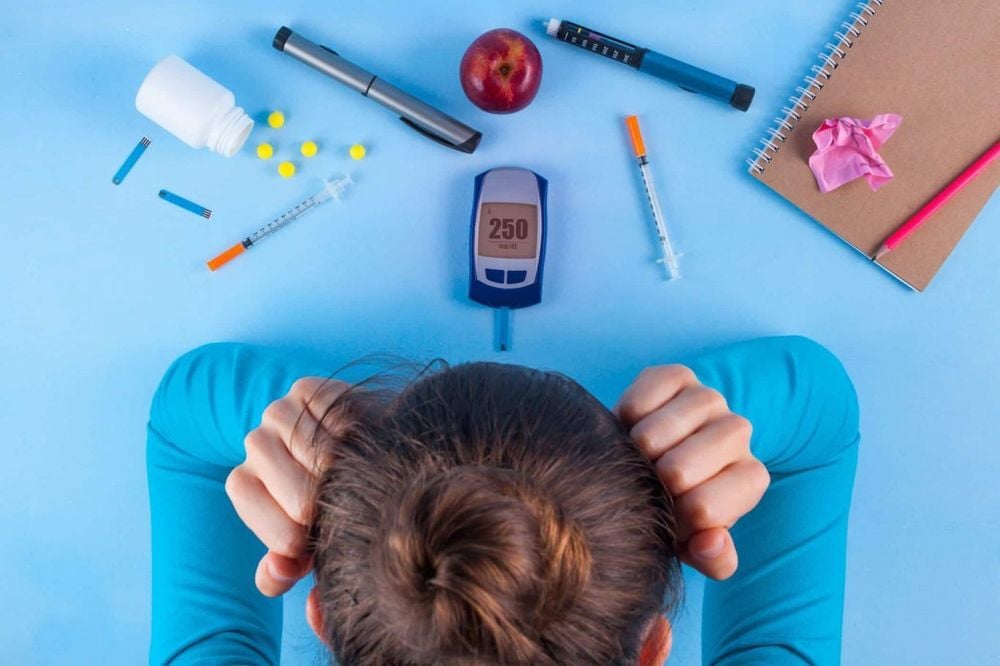
Cần phát hiện sớm triệu chứng tụt đường huyết ngay từ khi có các biểu hiện nhẹ
3. How to deal with low blood sugar The early treatment of low blood sugar is very important, so it is necessary to detect it as soon as there are mild symptoms. Treatment should be carried out quickly but also need to be ensured at a safe level to avoid excessive hyperglycemia and possibly weight gain:
Mild cases: Measure blood glucose, if blood glucose < 3.9 mmol/l, need eat or drink food containing about 15g of Carbohydrates such as 2 to 3 sugar tablets or half a glass of juice or half a glass of soft drink, half a glass of milk or about 1 teaspoon of honey... and wait 15 minutes, then measure blood sugar again . If blood glucose is still <3.9 mmol/l repeat the above procedure until blood glucose is greater than 5.6 mmol/l. Low blood sugar can occur after drinking or eating foods containing carbohydrates, so you should check your blood sugar every 60 minutes after treatment. For severe cases of patients causing confusion, convulsions, coma: If the patient is at home, do not try to pour sugar water into the mouth because it may choke on the respiratory tract. In this case, the patient should be rushed to the hospital. Patients need to be given sugar into the body through an intravenous line to maintain blood sugar levels above 5.6mmol/l. After the hypoglycemia has resolved, the patient should take measures to prevent hypoglycemia from returning.
4. Complications of hypoglycemia Some complications that cause hypoglycemia can be mentioned as:
Hypoglycemia can make patients often feel tired, dizzy, even fall, causing injury. . Severe cases of low blood sugar that are not treated quickly and promptly can cause death. Unconscious hypoglycemia: Repeated episodes of hypoglycemia can lead to unconscious hypoglycemia. The body and brain no longer produce the warning signs of low blood sugar, such as hunger, sweating, tremors, or an irregular heartbeat. When this happens, the risk of severe and possibly life-threatening hypoglycemia increases. The fact that people with diabetes often have recurrent episodes of hypoglycemia and cause hypoglycemia unawareness can make them feel afraid of drug treatment. Stabilizes uncontrolled blood sugar levels, increasing the risk of diabetes complications. Talk to your doctor about your fears and don't change your diabetes medication without your doctor's advice.

Hạ đường huyết có thể khiến người bệnh thường xuyên cảm thấy mệt mỏi chóng mặt
5. How to prevent hypoglycemia? Prevention of hypoglycemia is very important to avoid recurrence of hypoglycaemic episodes, measures may include:
In the treatment of diabetes: When the patient is taking antidiabetic medications such as insulin injections or oral hypoglycemic drugs, it is necessary to use the right dose and at the right time with meals. Do not skip meals, no matter how much or little you eat, you should also provide the necessary amount of carbohydrates. Do not skip meals because you want to lose weight because this is an unsafe measure. Daily activity: If you are more active every day or exercise more than usual, it is advisable to have a snack before activity. A machine for continuous glucose monitoring (CGM) can be used for some people, especially those with hypoglycemia unawareness. A CGM has a small wire threaded under the skin of the person to be monitored and it can send blood glucose readings to the recipient. If blood sugar drops too low, some types of monitors will alert the patient with an alarm. In addition, diabetics who take insulin medication can use an insulin pump that is integrated with the CGM and can stop delivering insulin when it notices that blood sugar drops too quickly to help prevent hypoglycemia. Patients need to recognize early symptoms of low blood sugar. When you have low blood sugar, it is necessary to drink juice, sugar water or suck on candy to avoid the risk of blood sugar levels falling to dangerous levels. Patients need to follow the diabetes treatment plan given by their doctor. If the patient is taking a new medication or a new dose of treatment, or has changed his eating schedule, practicing a new sport, it is necessary to share with the treating doctor about these changes to see if they affect the patient's health. control diabetes and control the risk of hypoglycemia. For people with recurrent episodes of hypoglycemia, it is important to eat several small meals frequently throughout the day. This is a measure to help prevent the patient's blood sugar from falling too low to be dangerous. Periodic medical examination or examination when low blood sugar is frequent at medical facilities for diagnosis and appropriate treatment measures for diseases causing hypoglycemia. Hypoglycemia can cause serious complications if blood glucose levels are too low. Therefore, as soon as the early warning signs are noticed, it is necessary to add sugar immediately to avoid lowering to dangerous levels. For severe cases of patients causing confusion, convulsions, coma, it is necessary to take the patient to medical centers for examination and treatment soon.
Vinmec International General Hospital is the address for examination, treatment and prevention of diseases. When performing the examination process at Vinmec, customers will be welcomed and used modern facilities and machinery along with perfect medical services under the guidance and advice of doctors. Good doctors, well-trained both at home and abroad. Therefore, when there are signs of dangerous low blood sugar or other abnormalities, relatives should soon take the patient to medical centers for examination and treatment.
Please dial HOTLINE for more information or register for an appointment HERE. Download MyVinmec app to make appointments faster and to manage your bookings easily.




